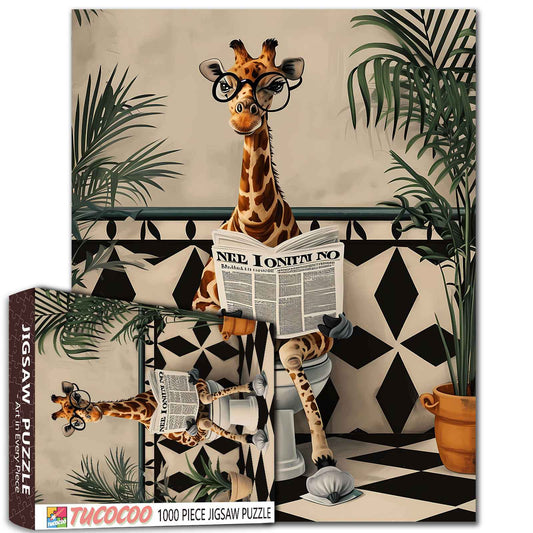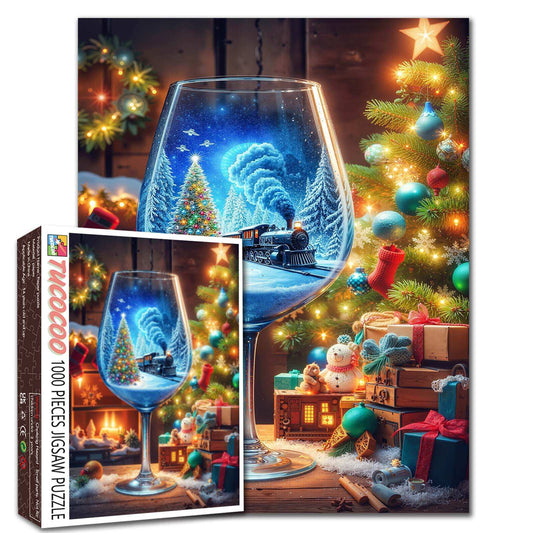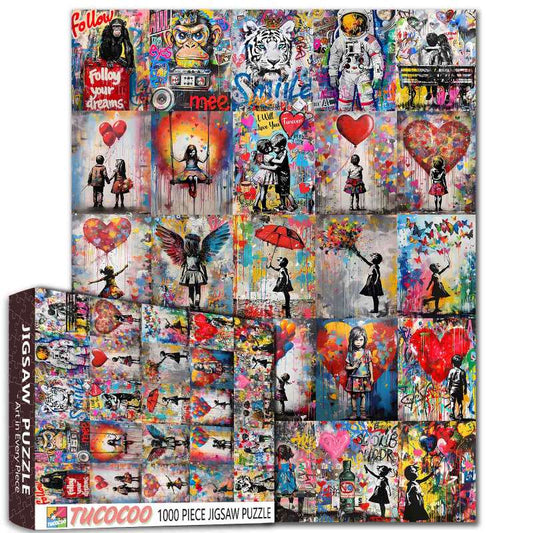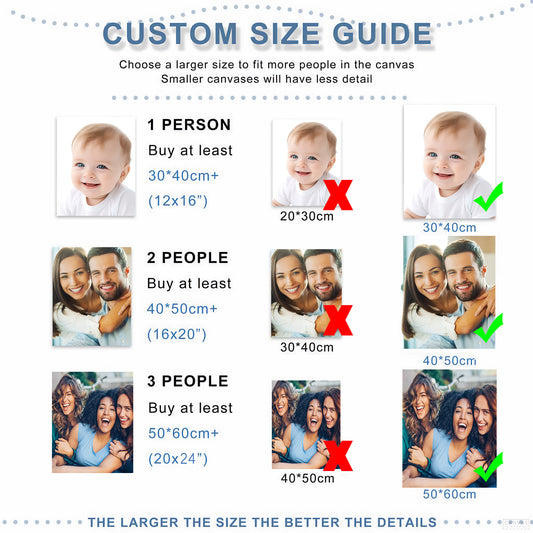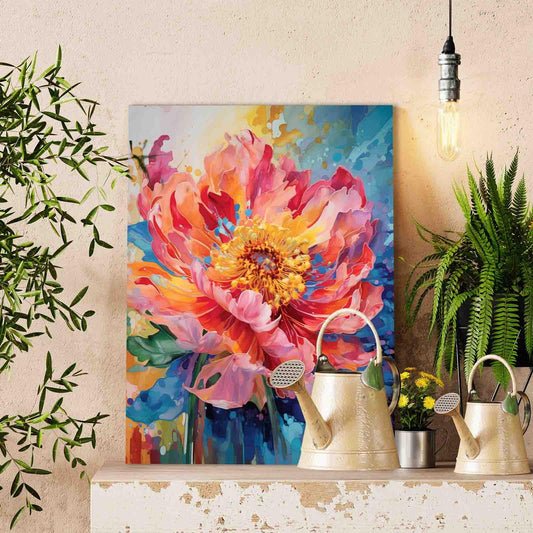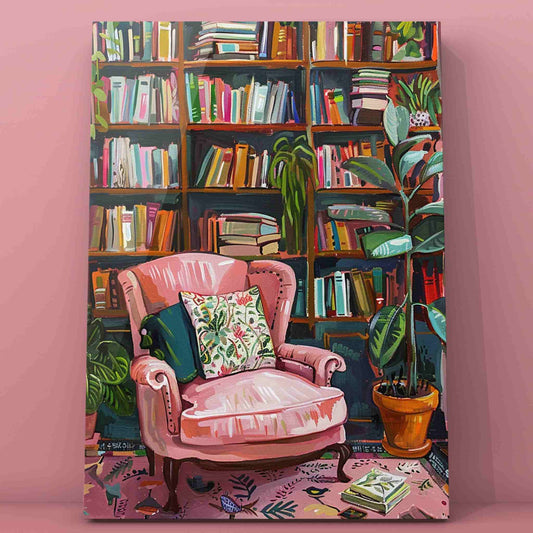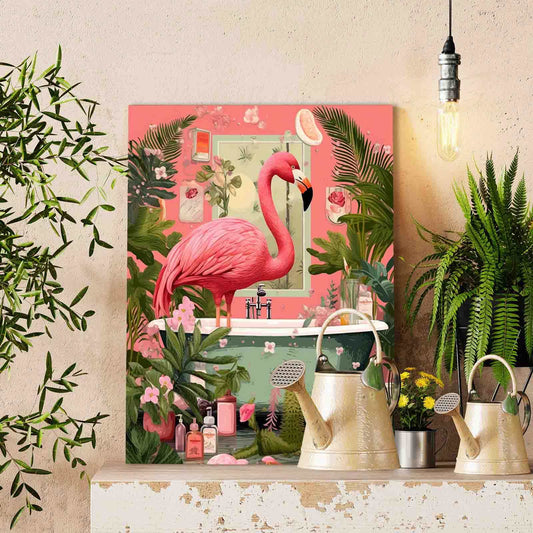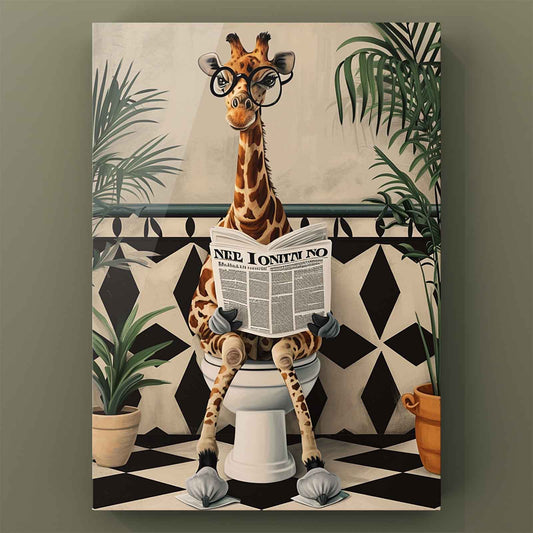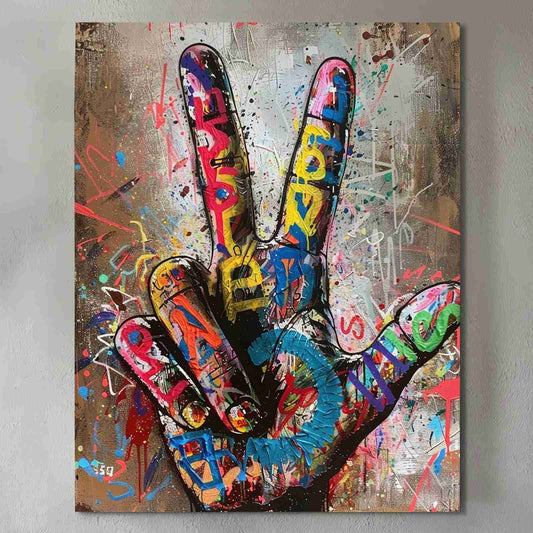
How to Choose the Right Rotating Puzzle Board for Your Needs
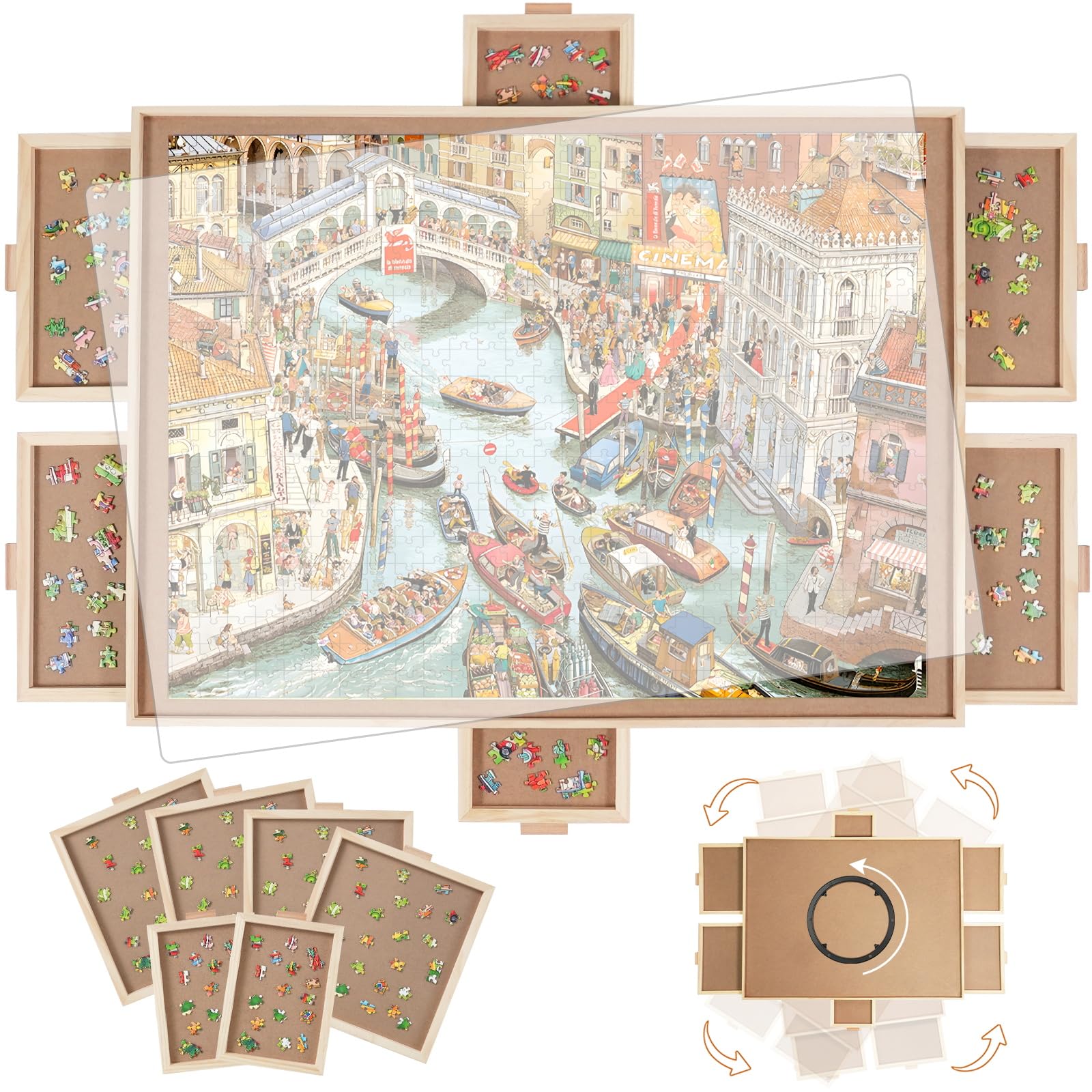
Finding the right rotating puzzle board can greatly enhance your puzzling experience. A rotating puzzle board allows you to spin your puzzle effortlessly, making it easier to reach pieces without straining or feeling uncomfortable. It keeps your puzzle organized and adds to the overall enjoyment of puzzling. Whether you're working on a small or large puzzle, a rotating puzzle board helps you stay focused and have fun.
Tip: Choose a rotating puzzle board that suits your puzzling style to enjoy it for years to come.
Key Takeaways
Pick a rotating puzzle board that matches your biggest puzzle. This makes puzzling easier and more fun.
Think about the board's material. Wooden boards last longer and look nice. Plastic boards are lighter and easy to carry.
Find boards with drawers or non-slip surfaces. These help keep pieces safe and tidy while you work.
Test how smoothly the board turns. A good turning system lets you spin it without messing up your puzzle.
Decide on a budget that balances cost and quality. A good board can make puzzling more enjoyable for a long time.
Understanding Rotating Puzzle Boards
What is a rotating puzzle board?
A rotating puzzle board is a tool that makes puzzling easier. It’s a flat surface that spins, so you can turn your puzzle without moving yourself. This is helpful for big puzzles or tricky spots where pieces are hard to fit.
Most boards have a strong base and smooth spinning parts. Some also have raised edges to stop pieces from falling off or surfaces that keep puzzles from sliding. Whether you do puzzles for fun or as a hobby, this tool can really improve your experience.
Benefits of using a rotating puzzle board
Rotating puzzle boards have many benefits that make puzzling better. Here are some of the main ones:
You can turn the board instead of stretching to reach pieces.
It keeps your puzzle safe from spills or being messed up.
It’s great for big puzzles because you can reach every part easily.
You can move and store your puzzle without losing progress.
Using tools like this can also help your brain. For example, puzzles like the game Optica improve how you think about space and shapes. These skills are useful for puzzles and even jobs in science and math. A rotating puzzle board doesn’t just make puzzling easier—it can also make you smarter over time.
If you love puzzles, this tool is a must-have. It’s not just about finishing puzzles quickly—it’s about enjoying the process without stress.
Key Factors to Consider

Size and capacity
When choosing a jigsaw puzzle table, size matters. You want a board that fits the largest puzzle you plan to work on. If you love tackling 1,000-piece puzzles or more, make sure the board has enough space to hold the entire puzzle comfortably. Plus, leave some extra room for sorting and organizing your pieces. A cramped board can make puzzling frustrating, so go for one that gives you plenty of breathing room.
Another thing to think about is the board's weight capacity. A sturdy board prevents bending or twisting, especially if you’re working on a large wooden jigsaw puzzle table. Lightweight boards might seem convenient, but they can warp under pressure. Always check the product details to ensure the board can handle your puzzling needs.
Tip: If you’re unsure about the size, measure your favorite puzzles and add a few inches for extra space. It’s better to have a board that’s slightly bigger than one that’s too small.
Material options
The material of your jigsaw puzzle table can affect both its durability and your overall experience. Wooden jigsaw puzzle tables are a popular choice because they’re sturdy and long-lasting. They also add a touch of elegance to your puzzling setup. However, wooden boards can be heavier, which might make them harder to move around.
If you prefer something lighter, consider boards made from composite materials or plastic. These options are easier to carry and store but may not last as long as wood. Some boards also come with non-slip surfaces to keep your puzzle pieces in place, which is a great feature if you’re working on a tricky puzzle.
Think about your priorities. Do you want a board that looks great and lasts for years? Or do you need something lightweight and easy to handle? Your choice of material should match your puzzling style and how often you plan to use the board.
Portability and storage
Portability and storage are key if you don’t have a dedicated puzzling space. A good jigsaw puzzle table should be easy to move and store when not in use. Some boards, like the HAHA Puzzle Board, come with built-in drawers for organizing your pieces. These drawers make it easy to keep everything in one place and access pieces quickly.
Rotating puzzle boards also improve accessibility. You can work on different sections of the puzzle without having to reposition yourself. However, keep in mind that some boards can be heavy. For example, the HAHA Puzzle Board weighs 23.9 pounds, which might make it less portable for some users. If portability is a top priority, look for a lightweight board with foldable or compact features.
Note: If you’re short on space, consider a board with adjustable height or one that can slide under a bed or couch for storage. This way, you can enjoy puzzling without cluttering your living area.
Rotation mechanism
The rotation mechanism is the most important part of a rotating puzzle board. It controls how easily you can spin the board while puzzling. A good mechanism lets you turn the board smoothly without messing up the puzzle pieces. But how can you tell if the mechanism is dependable? Let’s break it into simple points:
Design and Testing: Experts design and test the mechanism to make sure it works well. They use special tests to check its strength and reliability.
Material Quality: Strong materials are used to make the mechanism last longer. Good materials stop it from wearing out quickly.
Manufacturing Precision: Each part is carefully made to fit perfectly. This ensures the board spins smoothly every time.
Functional Testing: Before being sold, the board is tested to mimic real use. This makes sure the mechanism won’t break when you need it.
Maintenance: Regular care, like cleaning and oiling, keeps the mechanism working well. This is especially helpful if you use the board often.
When picking a rotating puzzle board, choose one with a solid and smooth mechanism. A bad mechanism can make the board wobble or get stuck, ruining your fun. If you can, try the board yourself or read reviews to see how it performs.
Tip: Boards that tilt often have better rotation mechanisms. These are useful for adjusting the puzzle’s angle to see it more clearly.
Additional features
Some rotating puzzle boards have extra features that make puzzling easier and more fun. While these aren’t necessary, they can make your setup more comfortable. Here are some popular options:
Built-in drawers: Small drawers help you organize and store puzzle pieces. This makes it easier to find the pieces you need.
Non-slip surfaces: A surface that stops pieces from sliding can save you frustration, especially with hard puzzles.
Tilting features: Some boards let you tilt the surface to a better angle. This helps reduce neck or back pain during long puzzling sessions.
Protective covers: Covers keep your puzzle safe from dust, spills, or pets. This simple feature can be very helpful.
Lightweight design: If you move your board often, pick one that’s easy to carry. Lightweight boards are easier to handle but still strong.
Think about which features are most useful for you. If you do puzzles occasionally, you might not need all the extras. But if you’re serious about puzzling, getting a board with more features can make your experience better.
Note: Wooden jigsaw puzzle tables often include many of these features. They combine style with practical use.
Budget considerations
Your budget is important when choosing a rotating puzzle board. Prices vary based on size, material, and features. Here’s how to decide:
Description |
Impact on Cost-Value Evaluation |
|
|---|---|---|
Strategy A |
Pick basic boards with fewer features. |
Great for casual puzzlers who want something affordable. |
Strategy B |
Choose mid-range boards with extra features. |
Balances cost and usefulness for most people. |
Strategy C |
Buy premium boards with advanced features. |
Best for serious puzzlers who want high quality. |
Think about what gives you the best value for your money. For example, wooden jigsaw puzzle tables cost more but last longer and look nice. If you’re on a tight budget, simpler boards made of plastic or composite materials can still work well.
Tip: Don’t just focus on the price. Think about how often you’ll use the board and which features you need. Spending a little more now can save you money later.
Matching the Board to Your Needs
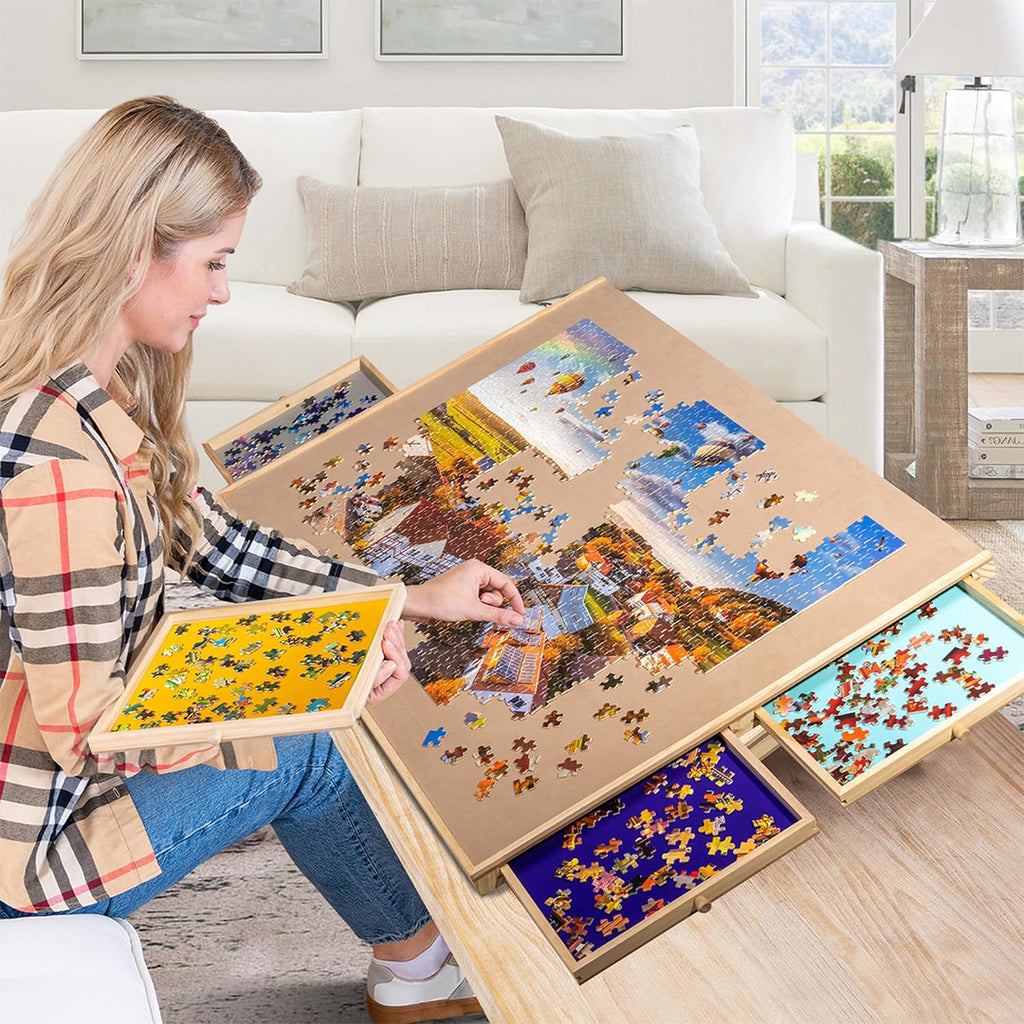
Best options for casual puzzlers
If you do puzzles sometimes, you don’t need anything fancy. A basic jigsaw puzzle table with a strong surface works well. Pick a board that spins easily and is simple to store. Lightweight boards made of plastic or composite materials are easy to carry.
Some boards have small drawers to keep puzzle pieces organized. These features help save time and keep your area neat. You don’t need an expensive wooden jigsaw puzzle table for casual puzzling. But a board with drawers can make puzzling more fun.
Tip: Pick a board that fits your favorite puzzle size. It should also be affordable for your budget.
Ideal boards for families
Family puzzling is about having fun together. You’ll need a board big enough for everyone to use. Wooden jigsaw puzzle tables are strong and last through group activities. Boards with storage drawers help keep pieces sorted when many people are puzzling.
Choose a board with drawers to organize pieces for each person. This avoids mixing up progress and keeps things clear. Some boards have non-slip surfaces to stop pieces from sliding during busy puzzling times.
Note: If you have kids, pick a board with raised edges. This keeps pieces from falling off and saves cleanup time.
Tips for Maintenance and Care
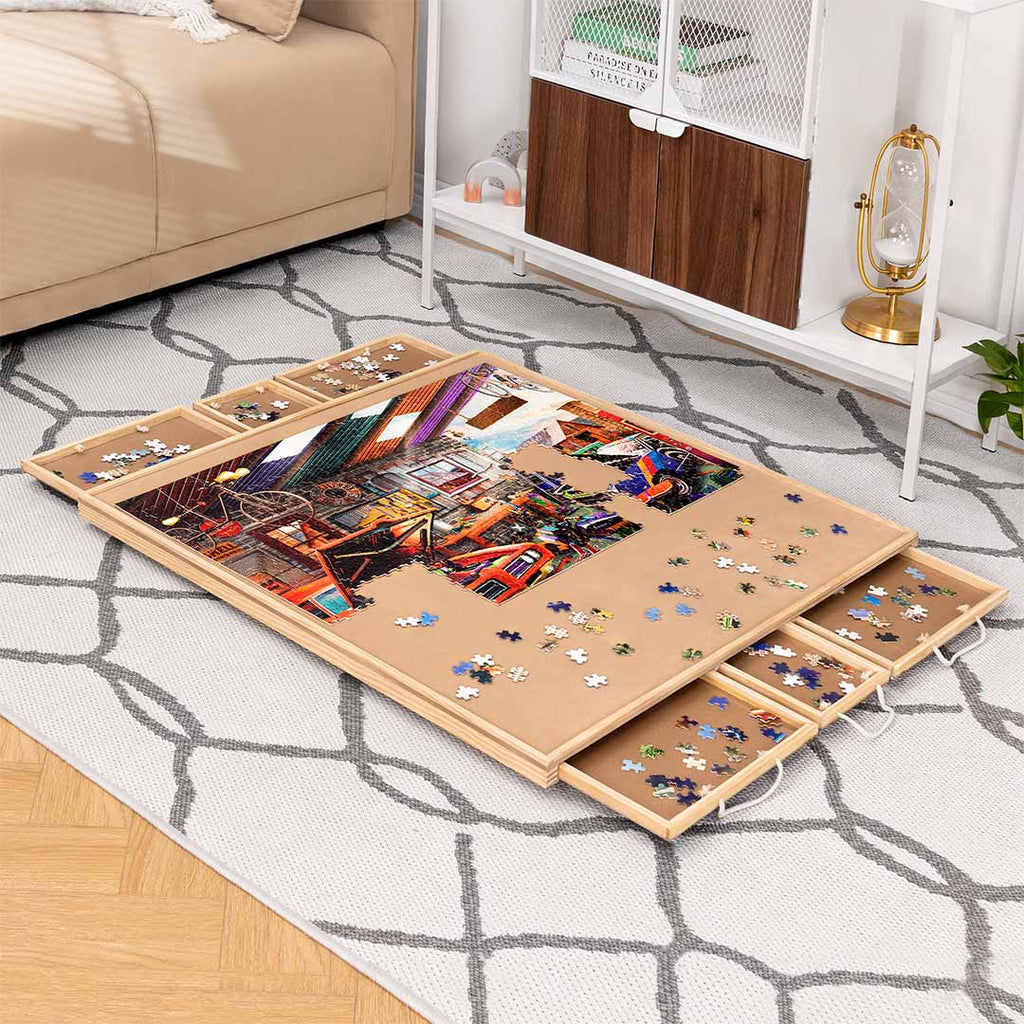
Cleaning your puzzle board
Keeping your puzzle board clean helps it last longer. Dust and spills can build up if you use it often. Wipe the surface with a soft, damp cloth to remove dirt. Avoid strong chemicals, as they can ruin the board's finish.
For tougher stains, gently scrub with a soft brush. If your board has delicate parts, ultrasonic cleaning can help. This method uses sound waves to clean without damage. Always check the maker’s instructions before trying advanced cleaning methods.
Tip: Wipe your board after each use to stop dust buildup.
Proper storage techniques
Store your puzzle board the right way to keep it safe. Foldable boards should be kept flat in a dry, cool spot. This stops bending or warping. Boards with drawers need all pieces secured before storing.
If you’re short on space, slide the board under a bed or couch. Use a cover to protect it from spills or dust. Keep it away from moisture and heavy objects.
Note: Don’t stack heavy items on your board. This can harm the surface or rotation parts.
Ensuring longevity and durability
Take care of your puzzle board to make it last. Don’t put hot or heavy things on it, as this can scratch or dent it. Clean and oil the rotation mechanism to keep it working smoothly.
Pick boards made from strong materials like wood or composites. These last longer than cheaper ones. If your board has a non-slip surface, clean it often to keep its grip. Regular care keeps your board in good shape and makes puzzling more fun.
Tip: Treat your puzzle board well to avoid replacing it later.
Picking the right rotating puzzle board makes puzzling easier and fun. Think about size, material, portability, and budget to find the best one. A board that fits your puzzle size keeps things neat. Strong materials like wood make the board last longer and stay steady. Features like foldable legs help you move and store it easily. Spending wisely lets you get good quality without overspending.
Here’s why these points matter:
Factor |
Why It’s Important |
|---|---|
Size |
Makes sure the board fits your puzzles and space. |
Material |
Durable materials like wood keep the board strong and stable. |
Portability |
Foldable legs and adjustable heights make puzzling more comfortable and easy to store. |
Budget |
Spending smartly helps you get good features without wasting money. |
Choose a board that fits your needs. Whether you do puzzles for fun or as a hobby, the right board can make puzzling more enjoyable.

Try Tucocoo Jigsaw Puzzles
FAQ
1. How do I know what size rotating puzzle board to buy?
Measure the largest puzzle you plan to work on and add a few inches for extra space. If you’re unsure, go for a larger board. It’s better to have extra room than to feel cramped while puzzling.
2. Can I use a rotating puzzle board for puzzles with odd shapes?
Yes! Most boards work well with puzzles of all shapes. Look for one with a non-slip surface or raised edges. These features help keep oddly shaped pieces in place while you work.
3. Are wooden boards better than plastic ones?
Wooden boards are sturdier and last longer. They also look more elegant. Plastic boards are lighter and easier to move. Your choice depends on whether you prioritize durability or portability.
4. How do I clean my rotating puzzle board?
Use a soft, damp cloth to wipe the surface after each use. Avoid harsh chemicals that might damage the finish. For stubborn stains, a gentle scrub with a soft brush works well.
5. Do rotating puzzle boards come fully assembled?
Most boards arrive ready to use. Some may require minor assembly, like attaching legs or drawers. Always check the product description to know what to expect.
Tip: If assembly is needed, follow the instructions carefully to avoid damaging the board.





